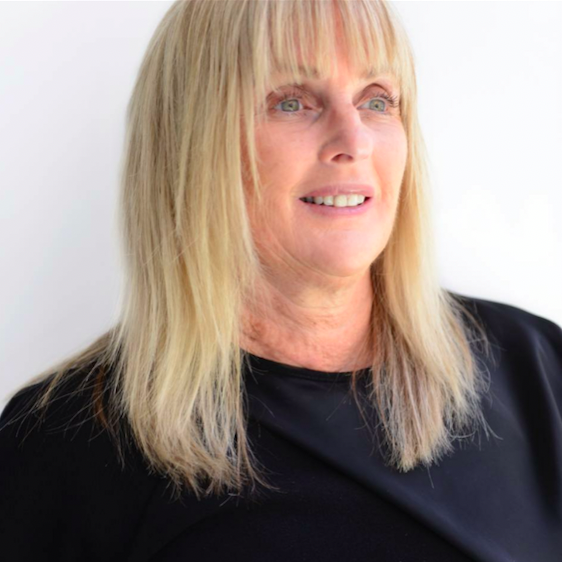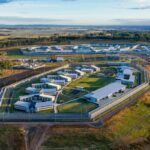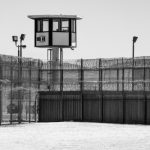“Free People Into the Community”: Debbie Kilroy on the Queensland COVID Prison Crisis

Right now, Queensland correctional facilities from Bundaberg down to the NSW border are in hard lockdown following prison officers having tested positive to COVID-19 for a second time in recent weeks.
And somewhat unsurprisingly, inmates have been rioting at a number of centres.
The Arthur Gorrie Correctional Centre located in a Brisbane western suburb has been shut down since last Thursday, after two officers tested positive to the deadly virus. And earlier this week, inmates began setting things on fire, flooding their cells and smashing windows.
Staffing shortages at Arthur Gorrie are now an issue, as some officers are in isolation pending COVID testing, others are unwilling to transfer from elsewhere due to virus concerns, while other officers are still caught up with the earlier outbreak that occurred in a facility holding kids and young people.
Decarceration now
One guard at the Brisbane Youth Detention Centre tested positive for COVID-19 on 19 August. A further six cases were subsequently linked to the juvenile gaol. And some of the extra cases in this cluster were other staff charged with looking after the incarcerated kids.
Queensland’s chief health officer Jeannette Young told the media at the time that extensive testing was underway at the facility. And there were questions being asked as to how the officer had contracted the disease given the state was then seen to be relatively COVID-free.
In response, human rights advocates yet again called out for the release of inmates into the community in order to better the situation inside. But what’s lesser known fact now is that the youths in the facility located in the Brisbane suburb of Wacol are still in extreme lockdown.
Sydney Criminal Lawyers spoke to Sisters Inside CEO Debbie Kilroy about the response coming from adult inmates, why Australian authorities refuse to consider the option of releasing them, and why she advocates for decarcerating now.

This week, there’s been rioting at the Arthur Gorrie Correctional Centre, which has been in lockdown for a week. The facility is understaffed and guards from other centres don’t want to lend a hand due to virus concerns.
Ms Kilroy, what do you think about the situation at Arthur Goorie?
It’s a response that was always going to happen. We see that when individuals are told they’re going into solitary confinement, they get upset and resist.
What we see with an individual being taken into solitary confinement is that they’re dragged by six to ten prison officers, held down, they’re clothes are cut off, they’re handcuffed, and they could later be charged without offences if they’re lashing out against officers.
To try and resist going into solitary confinement is a natural response.
At Arthur Goorie, the whole prison has gone into lockdown, so we’ve seen the group response of resistance to solitary confinement. And this was to set the place on fire, flood the prison, smash windows and throw things out.
The prisoners are doing that so that others can record and see their distress. But then what we get is the line from corrections that they’re just bad blokes running amuck inside prison.
This morning the union said that these men are upset because they can’t have family visits, and therefore drugs aren’t being brought in. That’s absolutely appalling.
People are resisting in that way as a group because they know how traumatising it is to be in solitary confinement.
A lot of the inmates in that prison are on remand, which means a sizable portion of them have yet to have been found guilty of the crimes they’ve been charged with.
Exactly. It’s a remand reception prison. So, predominantly, they’re still on remand or they’ve just been sentenced, and they have to get processed and sent to another prison.
The reason they’re saying that we don’t have enough prison officers is that officers are over in the youth prison working.
The silence about the youth prison is deafening. We’ve got children who have been locked up in solitary confinement for nearly two weeks now, and there’s no talk about it.
Those kids can’t even resist. They’ve been locked in their cells and haven’t really been let out.
So, the lockdown in the Brisbane Youth Detention Centre continues?
Correct.
What’s the Palaszczuk government’s plan from here, in your understanding?
They make the plan up as they go along. This runs parallel with COVID-19.
The chief medical officer is directing the traffic, and because COVID-19 is changing all the time, what we’re seeing is arbitrary decision-making by her in relation to how to deal with people in prison.
But that’s not actually the medical profession’s mandate. They’re trying to create rules and plans using a health framework within a carceral system, and it doesn’t work.
We’ve seen that because there are people in prison setting fires in their cells, smashing windows and throwing things out to get some attention to what’s happening inside.
What’s with the inability of Australian governments to act in any other manner besides simply tightening the screw in prisons as we’re facing this extreme health crisis?
They’re not courageous enough to deal with this issue. We’ve seen other countries around the world be very courageous and let people out to go back to their communities to be looked after.
They’re not being held in prison because they can’t socially distance due to overcrowding.
Here, the marketing from Corrective Services is that everyone is fine, prisoners are working with us, and we’re keeping them safe.
They’re not safe. They’re actually in extreme confinement. And we know that within 24 to 48 hours of being in solitary confinement your mental health decomposes rapidly.
There’s international research, which states that these mental health effects are ongoing for the rest of a person’s life.
And lastly, Ms Kilroy, you’ve been calling for alternative measures for these facilities since the onset of the pandemic.
What are you advocating for? And how do you envisage this would work?
It’s not necessarily an alternative. I’ve been calling for them all to be freed. We need to free people into the community, of course, with processes where people are safe and secure.
We could use hotel accommodation as has been used to quarantine the rich white upper class when they fly home from overseas. We’ve seen government’s using hotel accommodation for homeless people, so they’re safe.
We could actually release people and start decarcerating as a matter of urgency.
Take Arthur Gorrie, the majority of people in there are on remand and some are actually innocent. They could be released into hotels and quarantined there, so they’re not at risk of getting COVID from prison officers.







